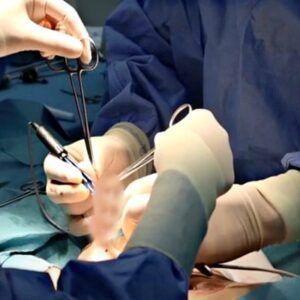Male circumcision has significant public health implications that are relevant to healthcare policies, disease prevention strategies, and community well-being in Dubai. This article explores the public health perspectives of male circumcision, including its impact on hygiene, disease prevention, cultural considerations, medical guidelines, and public awareness initiatives in Dubai.
Hygiene and Disease Prevention
From a public health standpoint, Male Circumcision in Dubai is associated with improved genital hygiene, reducing the risk of infections such as urinary tract infections (UTIs) and sexually transmitted infections (STIs). Circumcision has been shown to lower the transmission rates of HIV and other STIs, contributing to overall public health efforts in disease prevention.
Medical Guidelines and Safety Standards
Healthcare authorities in Dubai, such as the Dubai Health Authority (DHA) and the Ministry of Health and Prevention (MOHAP), provide medical guidelines and safety standards for male circumcision procedures. These guidelines emphasize the importance of trained healthcare professionals, sterile environments, proper anesthesia techniques, post-operative care, and informed consent to ensure the safety and well-being of individuals undergoing circumcision.
Cultural Considerations and Community Health
Considering Dubai's diverse cultural landscape, public health initiatives related to male circumcision must be culturally sensitive and inclusive. Healthcare providers engage with communities to raise awareness about the health benefits of circumcision while respecting cultural beliefs and practices. Collaborative efforts between healthcare professionals, community leaders, and religious institutions promote positive health outcomes and community acceptance.
Public Awareness and Education
Public health campaigns and educational programs play a vital role in raising awareness about male circumcision and its health benefits in Dubai. These initiatives aim to dispel myths, address misconceptions, promote informed decision-making among parents and individuals, and encourage regular healthcare screenings and follow-up care related to circumcision and sexual health.
Health Equity and Access to Services
Public health perspectives also emphasize health equity and access to circumcision services for all individuals, regardless of socioeconomic status or background. Dubai's healthcare system strives to ensure equitable access to quality healthcare services, including circumcision procedures, through public hospitals, private clinics, and outreach programs.
Collaborative Research and Evaluation
Continual research, data collection, and evaluation of male circumcision's public health impact are essential for evidence-based policymaking and program development in Dubai. Collaborative research efforts between healthcare institutions, public health agencies, and academic partners contribute to advancing knowledge, improving practices, and addressing emerging health challenges related to circumcision and male reproductive health.
Public health perspectives on male circumcision in Dubai encompass a holistic approach that integrates cultural sensitivity, medical guidelines, community engagement, public awareness, health equity, and ongoing research. By prioritizing public health initiatives related to circumcision, Dubai can enhance preventive healthcare measures, promote community well-being, and support individuals in making informed decisions for their health.
